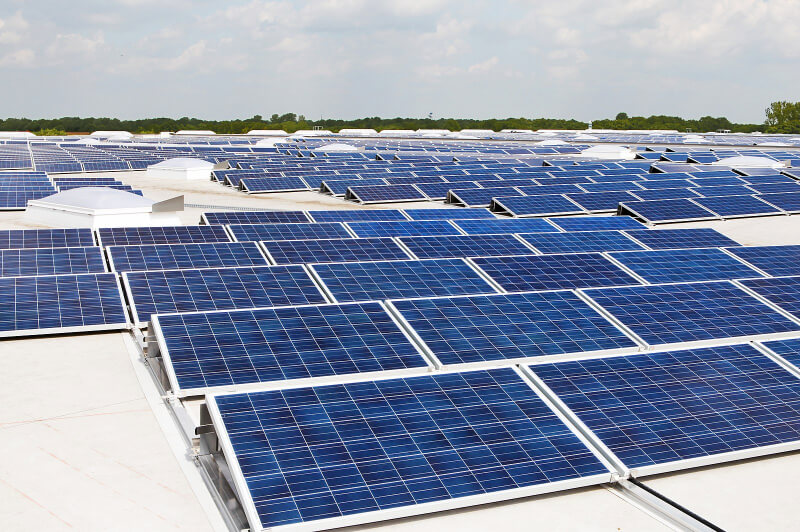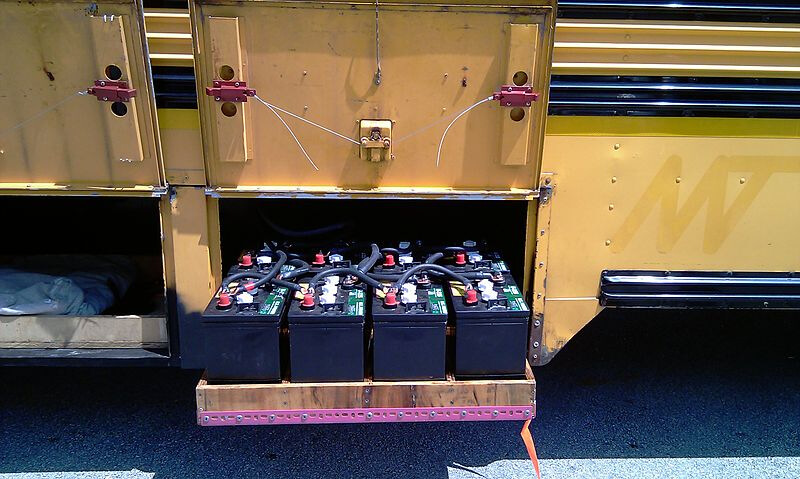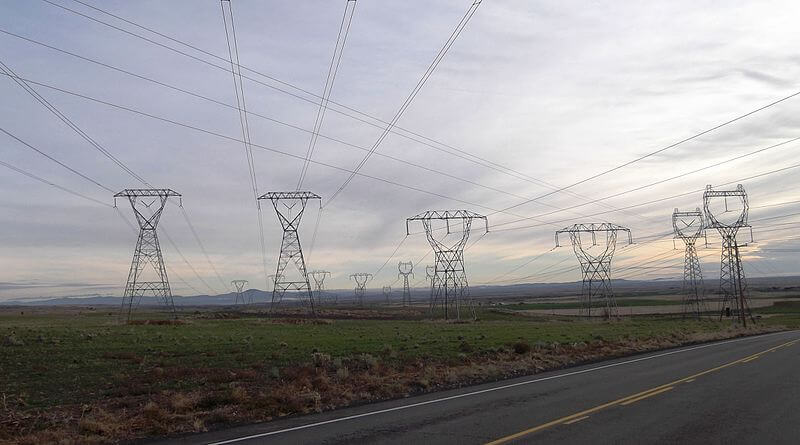Solar panels are an ingenious way of producing electricity without harming the environment in the form of carbon emissions. Photovoltaic solar systems have been in existence for long and a question that many customers, both the pre-existing users and those planning to switch to solar systems, ask is ‘how long do solar panels last on average’. In this article, we are going to elaborately answer all the concerns related to the longevity of solar panels. We will also talk about the maintenance and warranties of the solar panels so that you can have a good idea before making a transition to a solar PV system for your home or office.
Solar Panel’s Longevity
According to research conducted in 2012 by the National Renewable Energy Laboratory of Colorado, US, the output of a solar panel reduces by 0.8 percent on average, every year. This degradation rate translates into a 20 percent reduction in total power output generated in the 25th year. In other words, after 25 years, you will obtain an energy output of 80 percent as compared to the output in the first year of installation. However, it is important to note that this study was based on the analysis of older solar panels. Over the years, improvements in technology have reduced this degradation rate, and this translates into higher output, even after many decades of usage. In addition, the degradation rate depends on a number of other things, such as the brand of the panel, as well as the type of panel used. In sum, we can say that even after many years, solar panels are going to work just fine, retaining most of their initial output produced.
Why do solar panels degrade?
There are two main factors responsible for the degradation of solar panels: a) the type of the panel b) the impact of natural forces like weather and climatic conditions. Speaking of the type of solar panels, crystalline panels offer a greater degree of resistance against extreme weather conditions, and they can withstand heat and cold for more than two decades. Film panels, on the other hand, are more sensitive to changes in weather conditions and the process of degradation starts quite faster.
The location of your home and office and the underlying weather and climatic conditions of the area are other important factor responsible for the degradation of solar panels. Areas receiving strong wind blows, hailstorms, heavy snow loads, and exhausting heat and humidity tend to have a significant impact on the longevity of solar panels. On the other hand, solar panels installed in areas with favorable climatic conditions will degrade at a much slower pace.
Can you really increase the lifespan of solar panels?
Solar panels require regular check-ups by professionals from time to time. Proper maintenance can keep your solar PV system in good condition for a long period of time. Make sure that the installer thoroughly examines all the panels of the solar PV system each year. In this way, you can avoid some serious defects, which show up with solar systems. However, make sure that you allow only a certified solar PV system installer to carry out inspection and repair work, and not to attempt doing it yourself. Solar panels are complicated devices, and you can make things worse by trying to fix things on your own. It can also lead to the annulment of warranty on your solar panel. Regular maintenance work will reveal any potential problems with the panel, such as exposed wires or loose racking.
Apart from the solar panel, there are other components in a solar PV system that needs attention. They are important for the healthy functioning of the system. The standard microinverters last for a longer period and require to be changed only once in 25 years.
Since wind and adverse weather conditions can affect the longevity of the panel, make sure that you choose the location wisely before installing. For example, mount them tightly and securely to the roof, so that the solar panels are not affected by strong winds. Similarly, ensure that there is no object standing close to the panel, which deflects the sunlight. Besides, make sure that the solar panels are clean, without dust piling on top of them.
Warranties
Warranty is an important factor to consider while buying any appliance or device, and solar panels are no exception. Besides, solar panels involve a huge investment and therefore, it is always smart to protect yourself against incurring extra costs, in the long run. Usually, solar panel manufacturers offer a warranty period of 25 years, which means that the system will generate an acceptable amount of energy during this entire period, without much degradation. Besides the production warranty, manufacturers also tend to offer 12 to 15 years of equipment warranties on solar panels. Equipment warranties cover defects, as well as environmental damages to certain parts of the solar PV module.
What happens when a solar panel becomes completely dysfunctional?
Solar PV modules are a relatively new technology, and solar panels have become popular only in the last two decades. Most of the solar panels that are currently installed are a decade and a half old, and therefore, not much data is available to understand the condition of solar panels after 25-30 years. However, there are examples where solar panels have outperformed their factory specifications and their specified lifespans, offering longer periods of uninterrupted usage.
Solar panels are an environmentally friendly alternative, as they minimize carbon emissions. Besides, there is no wastage associated with them, as once installed, the solar PV system continues to work for decades. They just need to be checked and cleaned at regular intervals.
Proper disposal of a solar panel is something worth considering, since generating waste is not desirable. Once you decide to replace your old panel with a new one, you must look for companies that deal with the recycling of solar panels. At present, the solar panel recycling industry is at its nascent stage, because of the obvious reason that most solar panels are relatively new. However, this industry is going to expand and develop in the future, and we hope that disposing of old solar panels will become easier and handier.
How often do you have to replace solar panels?
If not physically damaged, a solar panel can easily last for 35 to 40 years. A replacement is required only when the power output drops below 80 percent. As already stated, most solar panels can effectively maintain an efficiency level of over 80 percent, for about 25 years. The newer panels, on the other hand, have a degradation rate of about 0.5 percent per year, which means that it requires more than 35 years for the efficiency to drop below 80 percent. Physical damage is unlikely to happen to a solar panel because it does not have any moving parts.
How do I know if my solar panels are going bad?
There are a number of ways in which you can figure out whether your solar panel is undergoing deterioration. Following are some of them:
Voltage and Current Output
You can measure the output generated by the solar panel and compare it with its nominal rating and specifications. Make sure that you measure the output only at noon on a bright, sunny day, for optimal results. Some solar installations come with current and voltage displays, through which you can monitor their performance. However, if your solar PV system has no such display, you can use a multimeter to measure the output. If the readings are more than 20 percent below the nominal rating, then we can say that the panel might be wearing out.
Physical Deterioration
Physical deterioration is something that is visible. Weather and climatic conditions are the most important reasons for physical deterioration of solar panels. For instance, hailstorms can cause cracks on the panels. Temperature differences can also result in cracks in the enclosure. A careful physical inspection can reveal any such physical deterioration. Besides, do not forget to clean the panel regularly in order to get rid of dirt and dust.
Age
As already noted, the usual lifetime of a solar panel ranges between 30 to 40 years. If your solar panel is more than 25 years, with a significant reduction in performance then, it is time to change your panel.
Related Components
Auxiliary components connected to the solar panel can also lead to a decrease in output. Each of these components themselves have a specific lifetime, beyond which it needs to be changed for the healthy functioning of the solar PV system.
Conclusion
In this article, we discussed in length the longevity of solar panels. We not only answered how long solar panels last on average but also many other related questions such as warranties, physical deterioration, maintenance, etc. Go through this article to resolve any queries regarding the longevity of solar panels.
- 300 Watt Solar Panel Prices in India: 2023 - March 8, 2023
- 500 Watt Solar Panel Prices in India: 2023 - March 5, 2023
- Loom Solar Panel Price: 2023 - February 19, 2023



